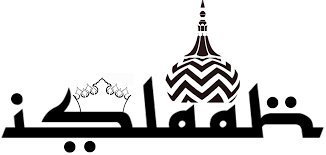A baby hen (chicken) fell into hot ghee (clarified butter) and then immediately died.nnIs it permissible or not to eat this ghee?nnThe Ruling:nnThe ghee has become impure (na-paak). To eat it without making it paak (i.e. purifying it) is Haraam (forbidden).nnThere are three methods of purifying it. The one method is to put in the same amount of water and continue to shake it until all the ghee comes to the top, and then it should be removed.nnOnce again more water should be put in, and the same process should be followed, and it should be removed once again.nnWater should then be poured in for the third time and it should be cleaned in the same manner again. If the ghee has become solidified, then add water equivalent to it thrice, and boil it until the ghee comes to the top, then remove it.nnI (Aala Hazrat) say, that it only needs to be boiled once, because thereafter the ghee will become thin, and to mix water in it and shake (stir) it, will be sufficient.nn?It is mentioned in Durar, If oil becomes impure, pour water over it and shake it, and when the oil surfaces, then use something to remove the oil and repeat this process thrice. (text ends)nnThis is in contrast to Imam Muhammad and is the Madhab of Imam Abu Yusuf, and this is easier, and the Fatwa (verdict) is based on this, just as it is mentioned in the Sharah (annotation) of the Shaykh as mentioned in Jaami ul Fatawa.nnAnd in Fatawa Khairiyah it is mentioned that, a few Kitaabs have spoken about boiling it, and this appears to be added by the scribe, because I have not seen anyone stipulate ?that boiling? the oil is a condition, whereas this ruling is mentioned in numerous Kitaabs, so Insearched for this intensely, and found that boiling actually means to shake (stir it), just as it has been clearly explained in Majma ur Riwaya and Sharah Qudoori, that if oil becomes impure, then water should be continuously put into it and it should be stirred, hence deliberation is required at this juncture. (This text ends here) – Or the rule of boiling it is in the case when the oil becomes impure and then becomes solidified. I then noticed that the author of Durr e Mukhtar has explained this in Khaza?in, by saying that, in flowing (liquid) oil, pour in water, and in solid oil, water should be put into it, and it should be boiled, until such time that the oil surfaces [until end of text?.]nnThe second way is that, if the impure ghee (which is kept) in a vessel is becoming solid, then melt it on some fire (stove etc), and then continue to put in the same kind of pure ghee into that vessel, until it fills up with ghee and boils over.nnIn this way, all the ghee will be regarded as purified. It is in Jaami ur Rumooznn?The manner of purifying flowing agents (i.e. Liquids) such as water and grape syrup etc is that the same type of thing should be mixed in it, and it should then be made to overflow.?nnThe third method is to take pure ghee, and to sit on a bench etc (i.e. at a height) and to keep an empty vessel at the bottom (i.e. on the ground), and to then pour that pure ghee into something which looks like a drain-pipe (i.e. like a channel), and with it the impure gheenshould also be poured in, and then both should flow out of the channel in one strain into the vessel, in other words, put both the pure and impure ghee together in through the channel, so that all the impure ghee flows into the vessel as one strain with the pure ghee, and in thisnway all of it will become pure (paak).nnIt is in KhazanannIn the first method, there is a risk of the ghee becoming wasted (bad) if it is washed i.e. rinsed thrice with water.nnIn the second method, the ghee will boil and some of it will boil over and be wasted. The third method is very clear, but immense care needs to be taken in this method, wherein neither should a single drop of the impure ghee fall in before the pure ghee, nor after, and neither should a single drop of impure ghee splash whilst it is flowing throughnthis channel i.e. tube, and fall into the vessel, separate from the pure ghee; otherwise all which has fallen into the vessel till now, or which will fall in now, will be regarded as being impure.nn[And Allah Almighty Knows Best]nnName of Book: Fatawa AfricanAuthor: Aala Hazrat Imam Ahmed Raza KhannTranslator: Muhammad Afthab Cassim Qadiri Razvi Noori
